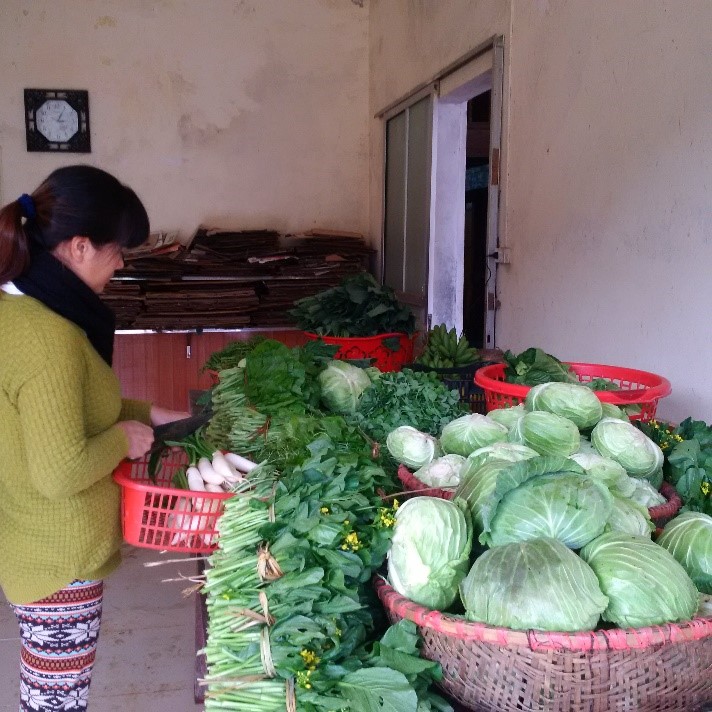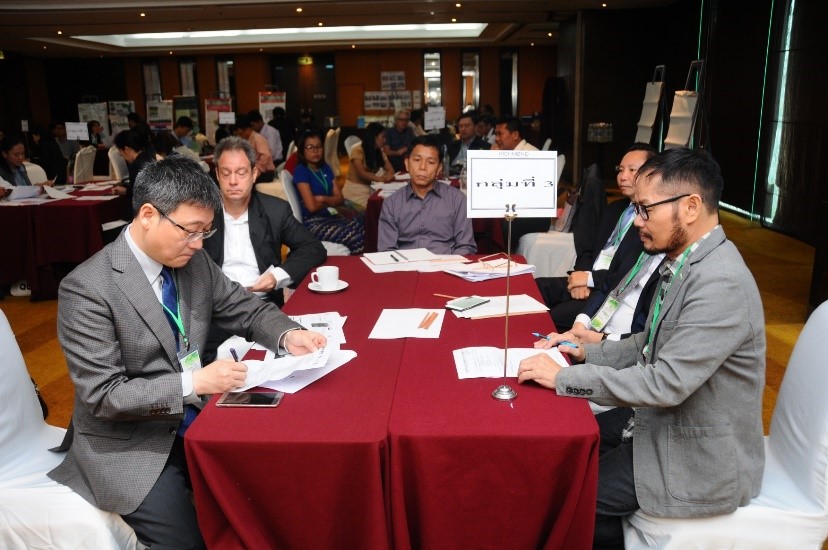VISION AND MISSION
 |
Farming families and rural communities have a crucial role to play in the future development of human and environmental systems. Farming is, and will remain, the way of life for more people than any other livelihood, and farmers will continue to play a very important role in management of natural resources. The Center for Initiatives on Community Empowerment and Rural Development (ICERD) believes that each woman, man and child has the right to knowledge, has the responsibility to decide, and should have the freedom to act in ways which ensure the health and sustainability of human and environmental systems. Further, each woman, man, and child has the inherent ability to undertake these tasks, and that the role of governments, corporations and international organisations is to support the efforts of individuals and local communities. Finally, we believe that efforts to promote healthy and sustainable systems should be informed by a combination of ethical, spiritual, scientific and aesthetic values. |
APPROACHES AND STRATEGIES
 |
Approaches that The Center for Initiatives on Community Empowerment and Rural Development (ICERD) will embrace include:
|
STRUCTURE AND ACTIVITIES
 |
The Center for Initiatives on Community Empowerment and Rural Development (ICERD) supports and builds upon activities similar to those that were supported by the Field Alliance and the National IPM program. Those activities include: the development and application of farmer educational approaches such as the Farmers Field School, community planning, farmer action research, participatory pesticide surveillance studies, local and international advocacy, farmer based information and evaluation systems, and environmental education in rural schools. |
Relationships developed over pass years will be continued and expanded, including those with:
- National and Local Government agencies such as Department of Crop Production, Plant Protection Department (PPD), National Agricultural Extension Center (NAEC) - Ministry of Agriculture & Rural Development (MARD), Department of Continuing Education, Department of International Cooperation - Ministry of Education and Training, Enviromental Health Agency, National Institute of Occupational and Environmental Health - Ministry of Health, Provincial Department of Agriculture and Rural Development (DARD), Community Learning Center (CLC);
- Mass organizations and Community groups such as Women union, Youth Union, Cooperatives, farmer groups;
 |
|
ICERD consists of a National Group, Provincial Implementation Institution, Community implementation units and Collaborating Organisations.
National Level: ICERD manage the Programmes in collaboration with The Plant Protection Department (PPD-MARD), Department of Continuing Education - Ministry of Education and Training (MoET).
Provincial Implementation Institutions are Crop Production and Plant Protection Sub Department (CP&PPSD) – Department of Agriculture and Rural Development (DARD) have previously implemented IPM training programmes. Provincial Implementation Institutions manage activities in cooperation with the collaborating organisations, such as District Continuing Education Centers (DCLCs), District Education Office, Mass organization, ect. So far ICERD has been supporting six provinces they are Hanoi, Bac Giang, Lao Cai, Ninh Binh, Quang Binh and Yen Bai.
Community implementation units are Community learning Centers (CLCs) under the Commune People Committee and Secondary School. CLCs, Secondary School implement activities in cooperation with a wide range of collaborating organisations, such as Women union, Youth Union and Farmer Union.
National Group provides support to Provincial Implementation Institutions, and to collaborating organisations. This support include training services, technical backstopping, information-sharing, advocacy and resource mobilization. National Group also manage funds for the projects, the Crop Production and Plant Protection Sub Department (CP&P PSD) manage fund for activity implementation within province and submit the financial report to ICERD.


